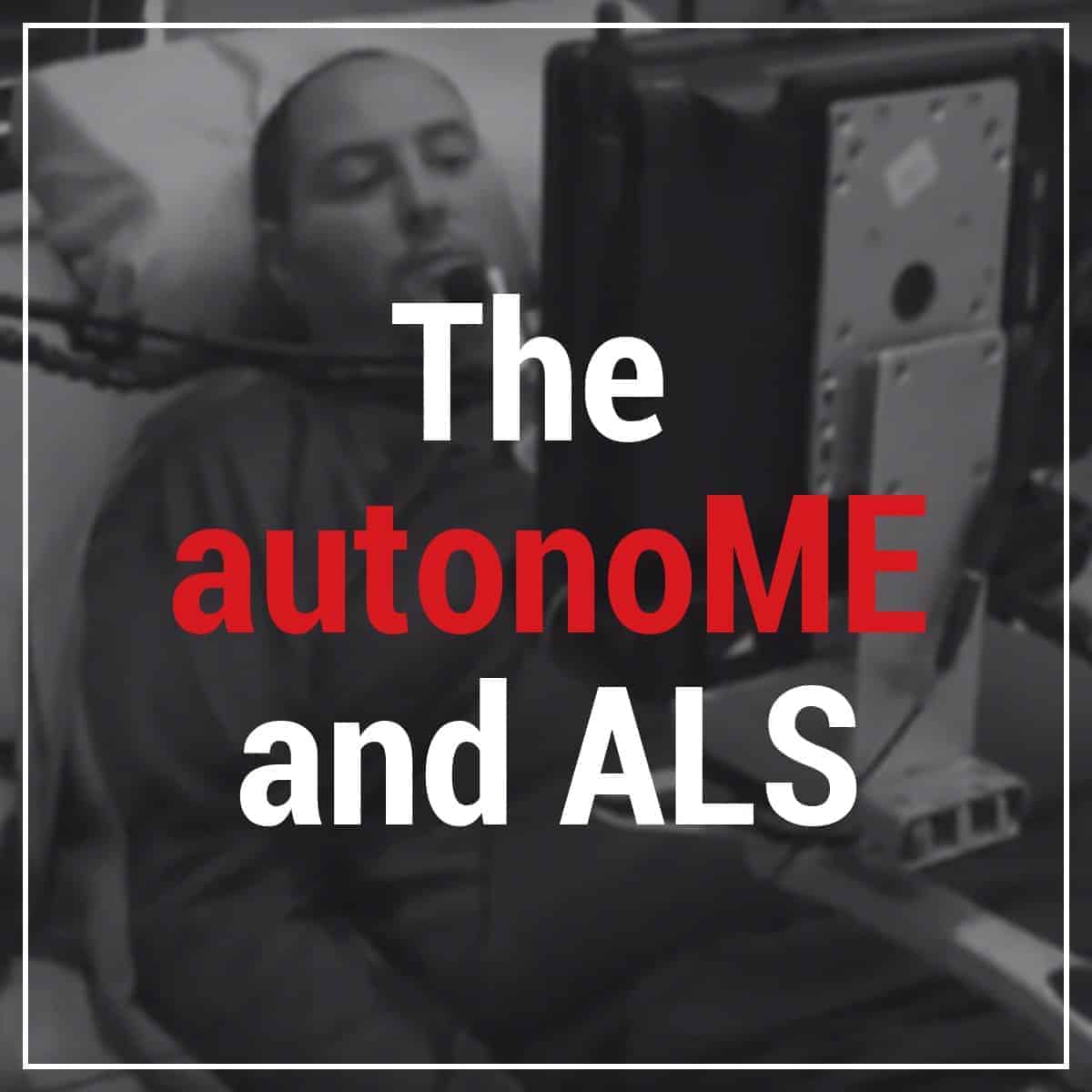The autonoME and ALS

Over the next few months, we will be featuring how the autonoME is used by individuals affected by different diseases and conditions. This month, we will discuss amyotrophic lateral sclerosis (ALS).
ALS is a neurogenerative disease affecting the brain and spinal cord nerve cells. It is progressive and results in the inability for the brain to control muscle movement, which eventually leads to loss of speech and lack of ability to move, eat and breath. Unfortunately, there is still no cure for ALS.
The autonoME is an integrated environmental control unit (ECU) / speech generation device (SGD) with full augmentative and alternative communication (AAC) capabilities. One of the features that makes the autonoME ideal for individuals with ALS is its ability to accommodate multiple input methods. This is extremely important as the disease progresses. For instance, a person with ALS may initially be able to use touch for commands. Once their sense of touch becomes compromised by the ALS, they can still control the autonoME using alternate input methods such as eye gaze, sip and puff or eye tracking.
Overall, the autonoME helps individuals with ALS become more independent by allowing them to communicate using AAC and control their environment, including lights, doors, fans and television sets. The autonoME can even be customized to allow individuals to access the Internet, make phone calls, send text messages, take photos, play games and more.
Are you or a loved one facing ALS? Or, are you a professional who works with ALS patients? If so, please give us a call to learn more about how the autonoME custom environmental control unit / speech generating device can help improve overall independence for both the individual with ALS and their caregivers.




